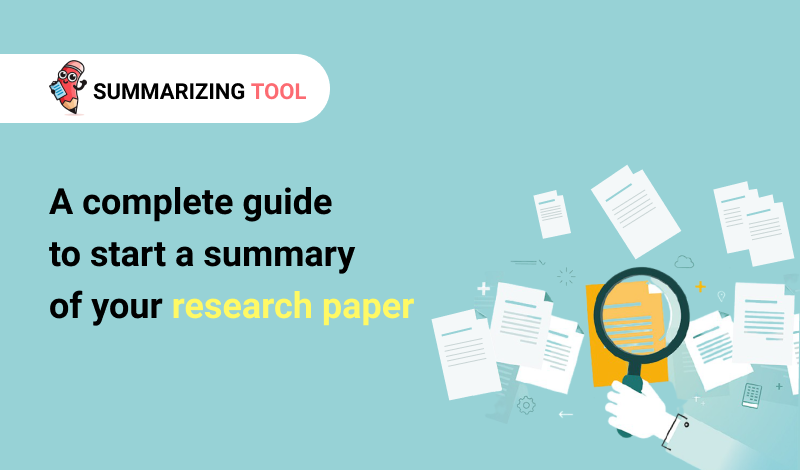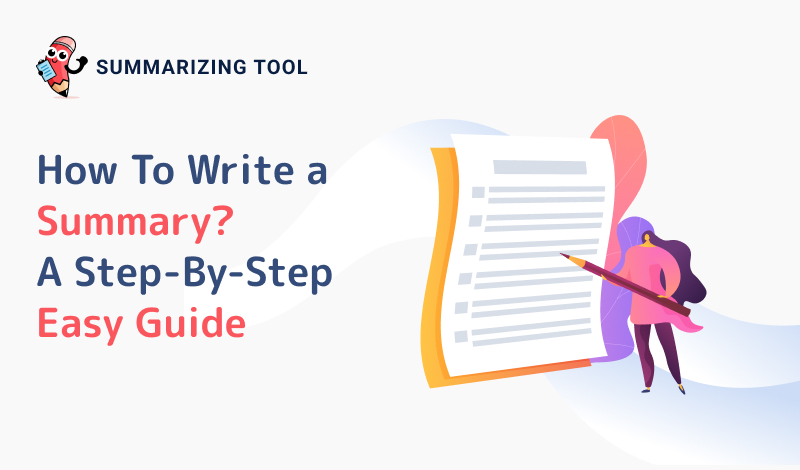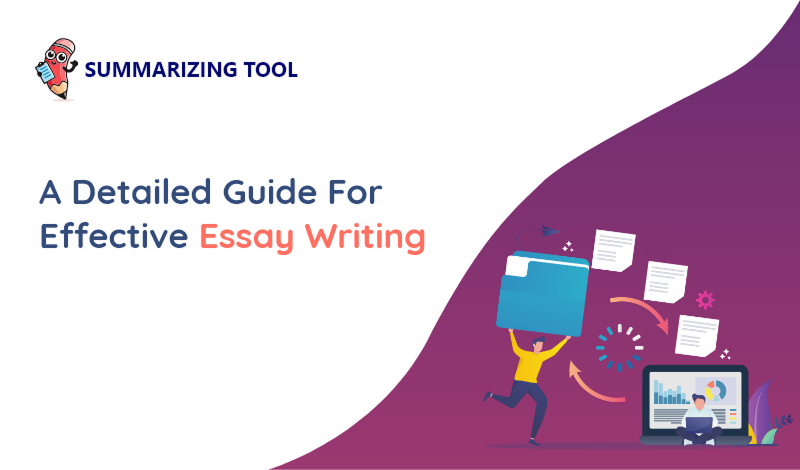
A complete guide to start a summary of your research paper
Aug 10If you are struggling to get through your research paper, it is likely that the reason for that is a lack of organization.
You might also find yourself stuck on "what parts to include and which ones are better left out."
The good news? There is a quick fix!
Read below as I explain how to start a summary for your research paper.
How to Start a Summary?
The following are the essential points that will make you write a good summary for your research paper;
Understand The Focus Of Your Summary
One of the main points that needs to be focused on when summarizing a paper is how it makes its argument.
A summary focuses specifically on what matters, and for research papers, this would often include examining their arguments in order to see if they are based on reliable sources or not.
Picking Important Information
It is important to organize headings and subheadings when writing the summary of a research paper. If someone reads your work, they should be able to find information about what you are discussing in an easy manner without having read other parts of it.
Read The Research Paper Twice
If you want to ensure that your review of the research paper is effective, then it is important to read cover-to-cover.
Covering all aspects in detail will help show readers how well researched and informed this work was done.
The best strategy when summarizing what you have read in order to write an effective summary of the academic article or textbook chapter would be.
Sit down, focus on reading as much as possible before you get started drafting summaries so that there are no surprises later.
This ensures that everything will make sense while trying to put together insights about how well-supported claims are made throughout the text.
Highlight The Important Text
One way to summarize a passage is by highlighting the important information.
Start with an introductory sentence that summarizes what you have read and then lists each point in order of importance, while noting any differences or contradictions between points made throughout the text.
You should also include either your opinion on this subject matter or any other notable features such as quotes from famous sources.
Take Notes
It is important to take notes when reading a book because it'll help you remember what happened.
It also helps if the author has included pictures in their storybook, and being able to draw those images can make them come alive more vividly for readers who are visual learners like me.
Add Relevant Information
.A summary of the passage should include relevant information, such as: a brief and concise description; what is being summarized e.g., paragraph or essay, author's name if applicable and title of work where appropriate.
Writing a summary of someone else's work can be challenging. It is easy to turn it into analysis, but if you are used to writing your own research papers.
It is important that you stay focused on the task at hand and not get sidetracked with all those thoughts rolling around in your head.
Make It Brief
Your outline is like a map. It is an overview of what you are going to say, and it can help keep your speech organized.
Your summary should be no more than 30 seconds long with 3-5 sentences in total that are also concise but complete enough so the audience knows exactly where you will take them next in your research paper.
An essential step for any speaker before they present their talk or debate are the introduction which includes background about themselves and why they want to speak on this topic followed by how they would summarize their main points in the research paper during the discussion or debate as well as concluding remarks including questions from experts/audience members if applicable at end.
Recheck and Edit
If you are sure your work is perfect, then check it twice.
This checklist can help ensure that everything important has been included and none of the little details have gotten overlooked.
Make edits or corrections as needed before submitting content to a publishing platform or you can use a summary generator to create and edit your summary by keeping focus on all the professional aspects of summary writing.
Frequently Asked Questions
Who can create a good summary?
There are many factors that go into creating a compelling and interesting passage, but we must not forget about the basics either.
Good grammar ensures your words flow together in a way which makes it easier for readers to understand what you are trying to say without constantly having their attention diverted by silly mistakes like "let's" instead of "lets".
How to quickly summarize a book or article written by someone else?
The first and most important step to summarizing a book or article that was written by someone else is making sure you understand the work.
You should be able to break down in your own words what each section of the essay says, how it relates back to what came before, and if there are any themes carried throughout.
Next up: choose three main points for your summary from anything mentioned so far or just summarize all three.
Finally, write out these key ideas as succinctly as possible without repeating any details already given about them.







